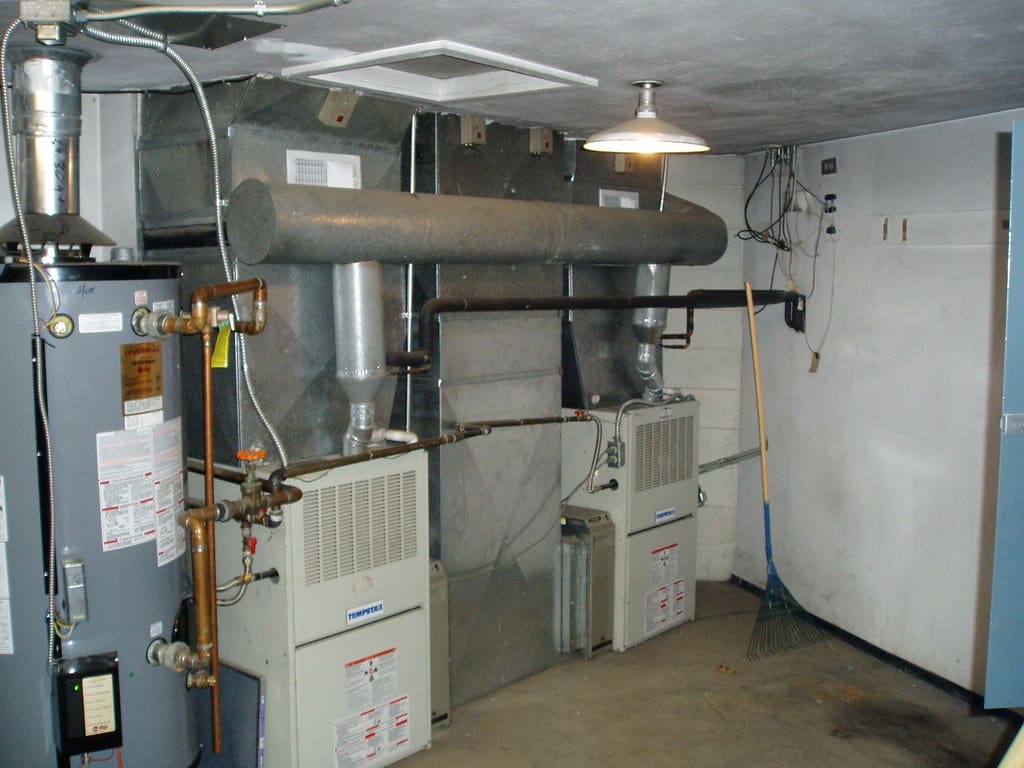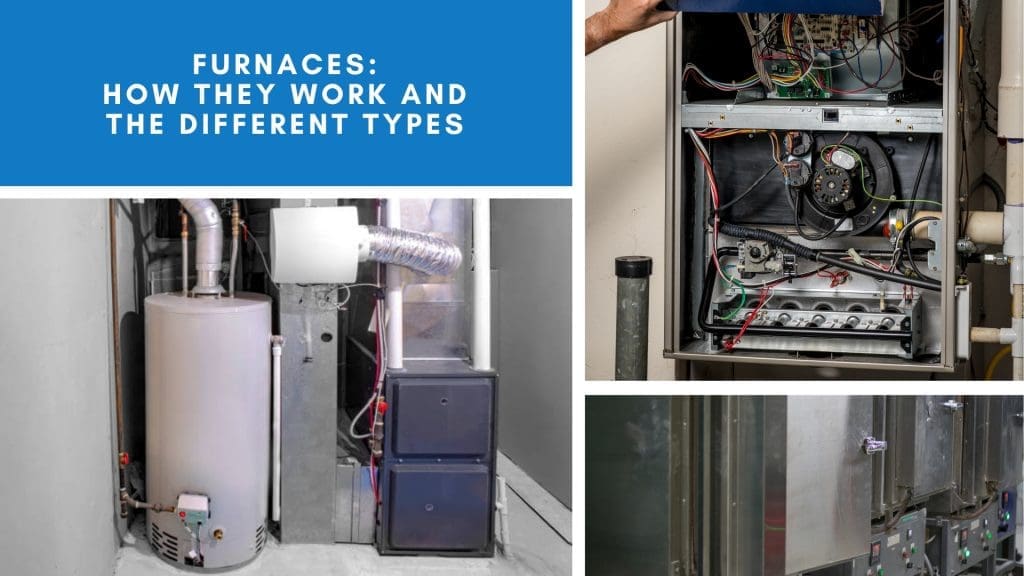As the world increasingly shifts towards energy efficiency and sustainability, the role of HVAC (Heating, Ventilation, and Air Conditioning) heaters has become more crucial than ever. With a variety of options available, ranging from electric and gas to solar and geothermal, understanding the nuances of each type is vital for homeowners and businesses alike. This article delves into the diverse world of HVAC heaters, examining their features, benefits, and the evolving landscape of regulations, particularly in California. Join us as we explore these essential components of modern comfort systems, empowering you to make informed decisions.
Introduction to HVAC Heaters and Their Importance
HVAC systems are pivotal in maintaining indoor comfort, no matter the season. With heating being a critical component, especially in colder months, the choice of heater can significantly impact energy consumption and environmental footprint. HVAC heaters come in various forms, each tailored to specific needs and conditions, thus ensuring user comfort, efficiency, and cost-effectiveness.

The importance of selecting the right HVAC heater extends beyond mere comfort. It involves considerations of sustainability, energy efficiency, and regulatory compliance. As the demand for greener solutions grows, understanding the pros and cons of each heating option becomes crucial for homeowners, businesses, and policymakers alike. With advancements in technology, today’s HVAC heaters offer innovative solutions that align with global sustainability goals.
A key factor in the importance of HVAC heaters is their ability to integrate with smart home systems, providing enhanced control, energy management, and convenience. This integration not only optimizes heating performance but also contributes to a reduced environmental impact, making informed choices more important than ever in the rapidly evolving landscape of HVAC technology.
Exploring Electric Heaters: Features & Benefits
Electric heaters are a popular choice for many due to their simplicity and ease of installation. They operate by converting electrical energy into heat, making them an ideal option for regions with moderate climate conditions. One of the key benefits of electric heaters is their ability to provide consistent and immediate warmth, with adjustable thermostats that allow for precise temperature control.
Electric heaters are generally considered safer than other types of heaters, as they do not rely on combustion processes. This reduces the risk of carbon monoxide leaks, a crucial consideration for households prioritizing safety. Additionally, electric heaters are often more cost-effective in terms of initial investment, making them accessible to a wider range of consumers.
However, the efficiency of electric heaters can be influenced by electricity rates and energy sources. In areas where electricity is generated from fossil fuels, the environmental benefits of electric heaters may be diminished. Despite this, their compatibility with renewable energy sources, such as solar panels, provides a pathway towards more sustainable heating solutions.
Gas Heaters: Efficiency, Cost, and Safety
Gas heaters are favored for their high efficiency and cost-effectiveness, particularly in areas where natural gas is readily available. They provide rapid heating capabilities and are well-suited for large spaces due to their powerful output. This makes them a popular choice for both residential and commercial applications where robust heating performance is essential.
One of the primary advantages of gas heaters is their operational cost, which is generally lower compared to electricity, depending on regional gas prices. However, the installation and maintenance of gas heaters can be more complex and costly. Regular inspections and maintenance are necessary to ensure safe and efficient operation, as gas heaters involve combustion processes that require proper ventilation and safety measures.
Safety is a crucial consideration when using gas heaters. The risk of gas leaks and carbon monoxide emissions necessitates stringent safety protocols and the installation of carbon monoxide detectors. While advancements in safety technology have improved the reliability of gas heaters, users must remain vigilant to avoid potential hazards.
Solar Heaters: Harnessing Renewable Energy
Solar heaters represent an innovative approach to sustainable heating, leveraging the sun’s abundant energy. These systems are designed to capture and convert solar radiation into heat, offering an eco-friendly alternative to traditional heating methods. Solar heaters are particularly effective in sunny regions, where they can significantly reduce reliance on conventional energy sources.
The primary benefit of solar heaters is their environmental impact, as they produce zero emissions and reduce the carbon footprint associated with heating. Over time, they can lead to substantial cost savings on energy bills, despite the higher initial investment and installation costs. Government incentives and rebates for solar installations can further enhance the financial attractiveness of solar heaters.
However, solar heaters may not be suitable for all climates, as their efficiency is contingent on sunlight availability. They often require supplementary systems, such as electric or gas heaters, to ensure consistent heating during cloudy or nighttime conditions. Despite these limitations, solar heaters remain an appealing choice for those committed to sustainable living.
Geothermal Heaters: Sustainable Comfort Solutions
Geothermal heaters offer a cutting-edge solution for sustainable heating by utilizing the earth’s natural heat. These systems extract heat from the ground, providing a consistent and renewable energy source for residential and commercial heating needs. Geothermal heaters are known for their high efficiency and long-term cost savings, despite significant upfront installation costs.
The key advantage of geothermal heaters is their ability to provide a stable and reliable heat supply, independent of external weather conditions. Their operation is environmentally friendly, with minimal emissions and reduced energy consumption compared to traditional heating methods. Furthermore, geothermal systems can provide both heating and cooling, offering a versatile solution for year-round comfort.
While the initial cost and complexity of geothermal installations can be daunting, the long-term benefits often outweigh these challenges. Geothermal heaters are best suited for properties with ample land for the installation of underground loops, and they often require professional expertise for design and implementation. Despite these considerations, they represent a promising direction for sustainable HVAC solutions.
Comparing the Pros and Cons of Each Heater Type
When considering different types of HVAC heaters, each offers distinct advantages and drawbacks. Electric heaters are simple and safe but may incur higher operational costs if electricity prices are high. Gas heaters provide cost-effective and powerful heating but require careful attention to safety and maintenance.
Solar heaters stand out for their environmental benefits and long-term savings, although they depend heavily on solar exposure and may require supplementary systems. Geothermal heaters offer unparalleled efficiency and sustainability but demand a higher initial investment and are best suited to specific site conditions.
In choosing the right HVAC heater, it’s essential to weigh these factors according to individual needs, climate conditions, and budget constraints. By understanding the pros and cons of each type, consumers can align their choices with both personal preferences and broader sustainability goals, ultimately achieving comfort and efficiency.
New California Regulations on Electric Heaters
As part of its ongoing commitment to environmental sustainability, California has introduced new regulations concerning electric heaters. These rules aim to reduce greenhouse gas emissions, promote energy efficiency, and shift reliance away from fossil fuels. By 2030, California plans to phase out gas appliances, including heaters, in new homes and buildings, encouraging electric alternatives.
The regulatory landscape in California requires electric heaters to meet stringent energy efficiency standards, encouraging manufacturers to innovate and improve product performance. These requirements align with the state’s broader goals of achieving carbon neutrality and represent a significant shift in HVAC heating practices.
For homeowners and businesses, understanding these regulations is crucial to ensure compliance and benefit from any available incentives. Investing in compliant electric heaters not only fulfills regulatory obligations but also supports California’s environmental initiatives, making it an essential consideration for those looking to upgrade or replace their heating systems.
FAQs: Understanding HVAC Heater Options
What are the main types of HVAC heaters available?
The primary types of HVAC heaters include electric, gas, solar, and geothermal heaters, each with unique features and benefits.
What are the main types of HVAC heaters available?
The primary types of HVAC heaters include electric, gas, solar, and geothermal heaters, each with unique features and benefits.
How do I choose the right heater for my home?
Consider factors such as climate, budget, energy source availability, and environmental impact. Evaluating the pros and cons of each heater type can guide your decision.
Are there any incentives for installing sustainable HVAC systems?
Yes, many regions offer rebates and incentives for installing energy-efficient and renewable energy systems, such as solar and geothermal heaters. Check with local authorities for available programs.
How LC HVAC in Hollywood Can Assist You
LC HVAC in Hollywood stands out as a leading provider of cutting-edge heating solutions. With a commitment to innovation and sustainability, they offer a range of services tailored to meet diverse heating needs. Their team of experts is well-versed in the latest HVAC technologies and regulations, ensuring clients receive the best possible solutions.
Whether you need assistance with selecting the right heater, understanding California’s new regulations, or installing a sustainable HVAC system, LC HVAC provides comprehensive support. Their customer-centric approach ensures personalized service, from initial consultation to installation and maintenance.
By partnering with LC HVAC, you benefit from their extensive expertise and commitment to environmental responsibility. They help navigate the complexities of HVAC systems, ensuring efficient and compliant heating solutions that align with both individual preferences and regulatory standards.
Conclusion: Making Informed Heating Choices
As the landscape of HVAC heaters continues to evolve, making informed choices about heating systems is more important than ever. From electric and gas to innovative solar and geothermal options, each type offers unique advantages and challenges. Understanding these nuances, along with new regulatory requirements, empowers consumers to make decisions that align with both comfort and sustainability goals.
In California and beyond, the shift towards more sustainable heating solutions presents both opportunities and challenges. By staying informed and seeking expert guidance, homeowners and businesses can navigate this transition smoothly, ultimately contributing to a healthier planet.
Choosing the right HVAC heater not only enhances indoor comfort but also plays a crucial role in reducing environmental impact. By considering all available options and aligning them with personal and regulatory objectives, you can make a positive difference in your home, community, and the world at large.


